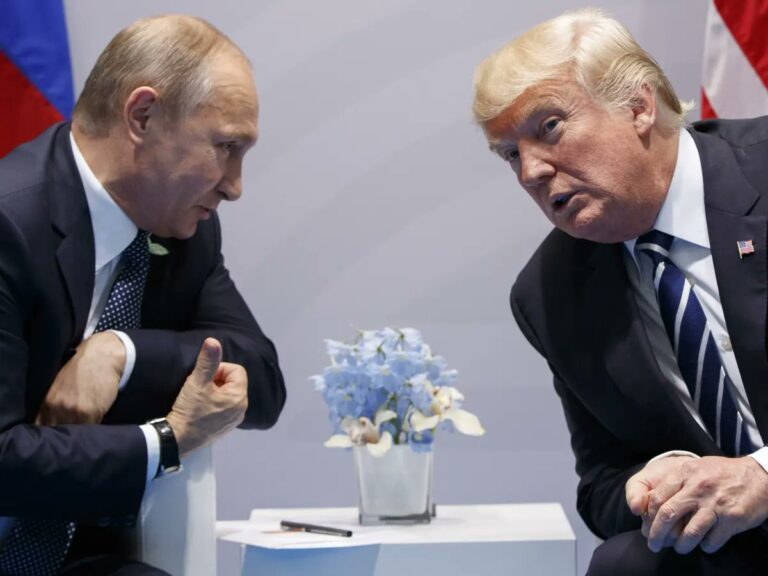The Biden administration has quietly authorized a sanctions exemption for Russia’s state nuclear corporation Rosatom to allow completion of Hungary’s Paks II nuclear power plant. This move, occurring amid ongoing Western sanctions on Russia for its war against Ukraine, reveals fractures in the Western sanctions regime, raises concerns about energy dependency, and reflects deeper EU–U.S. policy divergences.
2. Context: Rosatom, Paks II, and Hungary’s Strategic Alignment
Paks II Project Overview
- Hungary’s Paks II nuclear project, signed with Rosatom in 2014, is worth over €12.5 billion, 80% financed by a Russian state loan.
- Despite the war in Ukraine, Hungary insisted on continuing the project, citing “energy sovereignty.”
- The project involves critical components, uranium fuel, and Russian technical support — all linked to Rosatom.
Rosatom’s Global Role
- Nominally civilian, Rosatom is central to Russia’s geopolitical projection — especially through nuclear diplomacy in Europe, Africa, and Asia.
- The corporation is closely connected with Russian intelligence services and the defense-industrial complex.
3. Why the U.S. Approved the Exemption
A. Avoiding a Clash with Hungary (and Internal NATO Conflict)
- Hungary (under Viktor Orbán) blocked numerous EU sanctions against Russia.
- U.S. diplomats feared that fully enforcing Rosatom sanctions on Hungary could:
- Deepen Budapest’s alignment with Moscow,
- Undermine NATO unity,
- Fuel Orbán’s anti-Western narrative.
B. Strategic Energy Calculations
- The U.S. prioritizes keeping Hungary within the NATO framework — even at the cost of limited economic compromise.
- Blocking Paks II could have accelerated Hungary’s turn toward Russia and China in energy and infrastructure.
C. Technical and Legal Complexity
- Sanctioning Rosatom outright would have disrupted:
- Nuclear fuel supply chains in Europe
- Rosatom-led operations in other partner states (e.g., Turkey, India)
- The U.S. Treasury and State Department likely concluded that a blanket exemption was the least risky option.
4. Lobbying and Influencers Behind the Decision
Hungarian Lobbying
- Hungary lobbied aggressively through:
- Its Washington embassy
- Strategic figures in U.S.-Hungarian business associations
- Third-party actors in the U.S. nuclear sector concerned about global nuclear supply disruptions
Industry Influence
- U.S. nuclear corporations (e.g., Westinghouse) are concerned about supply chain bottlenecks.
- Some EU nuclear utilities reportedly warned Washington that sanctioning Rosatom too broadly could backfire in Germany, Slovakia, Czechia, and Finland.
Diplomatic Compromise Facilitated by the State Department
- The decision was likely made after quiet inter-agency debate involving the National Security Council (NSC), Department of Energy, and U.S. allies in the EU.
5. Consequences of the Decision
Geopolitical Risks
- Weakens credibility of U.S. sanctions against Russia, especially on the energy front.
- Emboldens Russia’s “peaceful atom” strategy in Europe, Africa, and Latin America.
- Undermines pressure on countries like Slovakia, Turkey, and Egypt to diversify away from Russian nuclear technology.
Signal to Other Russian Corporations
- May open the door to future exemptions for “civilian” entities with military-adjacent influence.
- Encourages Russian state firms to exploit civilian fronts for strategic ends.
Orbán’s Political Victory
- Strengthens Viktor Orbán’s domestic narrative of “Hungarian sovereignty vs. EU obedience.”
- Legitimizes Hungary’s dual alignment: NATO membership + deep Russian energy ties.
6. Strategic Recommendations (for U.S. & EU Policymakers)
- Define clear red lines: Limit exemptions to non-proliferation contexts only.
- Develop alternate nuclear fuel and technology alliances (U.S.–EU–Japan–Korea).
- Track Rosatom’s parallel activities in Africa and the Middle East more aggressively.
- Increase political costs for Hungary — via restrictions on future EU nuclear subsidies or military cooperation conditionality.
7. Conclusion
The U.S. waiver on Rosatom sanctions for Hungary’s Paks II project reflects a strategic concession, not a policy shift. Yet it creates long-term vulnerabilities — both to sanctions integrity and to Russia’s influence in Europe’s critical infrastructure. Unless matched with counterbalancing measures, the move could signal tolerance for energy-based Kremlin penetration into NATO territory.
Here are strong arguments to criticize the U.S. decision to lift sanctions on Rosatom for completing Hungary’s Paks II nuclear power plant — useful for policy analysis, opposition discourse, or media commentary:
Arguments to Criticize the Sanctions Exemption
1. Undermines the Sanctions Regime Against Russia
- Rosatom is not apolitical: It is a state-owned enterprise tied to the Kremlin’s geopolitical ambitions, intelligence networks, and dual-use technologies.
- Exempting Rosatom creates a dangerous precedent — other Russian entities may now lobby for similar carve-outs under the guise of “civilian” operations.
- It dilutes the deterrent value of the U.S.-led sanctions system and signals inconsistency to allies and adversaries alike.
2. Directly Aids Russia’s Strategic Goals in Europe
- Paks II is a long-term infrastructure project that cements Russia’s influence in an EU and NATO state for decades.
- Through financing, technology, and servicing agreements, Rosatom secures leverage over Hungary — including access to sensitive infrastructure and energy policy decisions.
- While the West tries to isolate Moscow, this decision hands Russia a diplomatic and economic win in the heart of Europe.
3. Enables Russian Intelligence Access to Critical Infrastructure
- Rosatom is known to operate as a platform for GRU and SVR personnel, especially through foreign project deployments.
- Allowing Rosatom to finish Paks II means Russian engineers, advisors, and technicians will be stationed in Hungary — providing an opportunity to embed long-term intelligence operations near NATO facilities.
- It’s a security liability inside the Schengen zone.
4. Strengthens Orbán’s Pro-Russian Agenda
- The waiver legitimizes Hungary’s dual strategy of NATO membership and deep ties with Russia.
- It rewards Orbán for obstructing EU unity on Ukraine and Russia.
- By giving in to Budapest’s lobbying, the U.S. emboldens other illiberal actors in the EU to demand exemptions and challenge the sanctions framework.
5. Weakens U.S. Position on Energy Security and Independence
- One of the key goals of U.S. policy is to reduce Europe’s reliance on authoritarian suppliers.
- Instead of accelerating nuclear diversification (e.g., U.S., French, South Korean technologies), the U.S. is enabling long-term Russian nuclear entrenchment.
- This contradicts efforts to secure alternative uranium enrichment, fuel rod supply, and nuclear waste management.
6. The Decision Was Made Opaquely, Undermining Trust
- The exemption was granted quietly and without public justification, sparking concerns about transparency and internal lobbying.
- Civil society, anti-corruption watchdogs, and EU allies were kept in the dark, creating the impression of backroom deals.
7. Damages the Moral High Ground of Western Policy
- While Washington urges other countries to reduce dependency on Russia, it just approved strategic dependencyin Hungary.
- This makes it harder to criticize India, Türkiye, or African states for their own Rosatom partnerships — they now have a Western precedent to point to.
- Diplomatic pressure from Baltic or Central European allies
If Donald Trump was involved in — or supported — the lifting of U.S. sanctions on Rosatom for Hungary’s Paks II nuclear power plant, here are the most plausible strategic, political, and personal motivations behind it:
1. Appeasement Toward Viktor Orbán: Strategic Exchange
Why Trump might agree:
Trump has consistently admired and praised Viktor Orbán, portraying him as a “strong nationalist leader.” By lifting sanctions on Rosatom for Hungary:
- Trump rewards Orbán’s loyalty and his vocal support for Trump’s 2024 campaign.
- He secures Hungary’s alignment with Trumpist foreign policy goals (e.g., NATO skepticism, opposition to aid for Ukraine).
- Trump might view this as a “deal”: nuclear energy for loyalty.
Implication:
It’s not about Russia or energy — it’s about keeping Orbán in the Trump camp.
2. Trump’s Broader Pattern of Leniency Toward Russian Interests
Why Trump might agree:
Trump has a long history of resisting actions that pressure Russia economically — he:
- Opposed sanctioning Nord Stream 2 early in his term
- Downplayed U.S. intelligence about Russian election interference
- Repeatedly said “we need to get along with Russia”
Allowing Rosatom to complete Paks II fits this strategic leniency — especially if presented as a civilian energy project.
Implication:
Trump likely views Rosatom not as a threat — but as a business partner that should not be “overregulated.”
3. Favoring Private Business Interests and U.S. Isolationism
Why Trump might agree:
Trump often prioritizes:
- De-escalation of multilateral commitments (e.g., pulling out of climate and arms deals),
- Avoiding entanglement in EU internal energy fights,
- Business opportunity over sanctions pressure,
Lifting sanctions on Rosatom for Hungary can be spun as:
- “America First” — we don’t need to police Europe’s energy deals
- Allowing market forces to operate without geopolitical constraints.
Implication:
Trump may see energy sanctions as “globalist overreach” that hurts business, not as tools of strategic leverage.
4. Undermining Biden-EU Cohesion on Ukraine,
Why Trump might agree:
Lifting sanctions on Rosatom could serve as a deliberate wedge:
- Undermining Biden’s pro-Ukraine coalition,
- Exposing divisions within NATO/EU,
- Elevating pro-Russian voices in Europe (Orbán, Fico, etc.)
Trump may see this not just as an energy decision — but a way to discredit Biden’s foreign policy.
Implication:
For Trump, weakening transatlantic unity is a win, especially if it’s spun as “correcting Biden’s failed war diplomacy.”
5. Possible Private Lobbying or Financial Influence
Why Trump might agree:
Though speculative, Trump’s circle has had:
- Previous interactions with Rosatom-linked businessmen (e.g., through real estate, uranium interests)
- Business-friendly intermediaries close to Hungarian and Russian networks
It’s plausible that business ties or indirect lobbying from Rosatom-friendly circles shaped the calculus.
Implication:
Even if not directly transactional, Trump has shown sensitivity to private economic interests behind foreign policy choices.
Conclusion: It Aligns With Trump’s Vision
| Factor | Trump’s View |
| Orbán | Ally worth rewarding |
| Russia | Shouldn’t be isolated without business logic |
| Nuclear | Civilian, not military — doesn’t merit sanctions |
| EU | Overdependent on U.S. — let them solve their own problems |
| Messaging | “Biden’s sanctions hurt everyone — I cut deals instead” |
Would you like a Trump–Biden comparison char on their approaches to Rosatom or Hungary?
Here are strong arguments to criticize the U.S. decision to lift sanctions on Rosatom for completing Hungary’s Paks II nuclear power plant — useful for policy analysis, opposition discourse, or media commentary:
Arguments to Criticize the Sanctions Exemption
1. Undermines the Sanctions Regime Against Russia
- Rosatom is not apolitical: It is a state-owned enterprise tied to the Kremlin’s geopolitical ambitions, intelligence networks, and dual-use technologies.
- Exempting Rosatom creates a dangerous precedent — other Russian entities may now lobby for similar carve-outs under the guise of “civilian” operations.
- It dilutes the deterrent value of the U.S.-led sanctions system and signals inconsistency to allies and adversaries alike.
2. Directly Aids Russia’s Strategic Goals in Europe
- Paks II is a long-term infrastructure project that cements Russia’s influence in an EU and NATO state for decades.
- Through financing, technology, and servicing agreements, Rosatom secures leverage over Hungary — including access to sensitive infrastructure and energy policy decisions.
- While the West tries to isolate Moscow, this decision hands Russia a diplomatic and economic win in the heart of Europe.
3. Enables Russian Intelligence Access to Critical Infrastructure
- Rosatom is known to operate as a platform for GRU and SVR personnel, especially through foreign project deployments.
- Allowing Rosatom to finish Paks II means Russian engineers, advisors, and technicians will be stationed in Hungary — providing an opportunity to embed long-term intelligence operations near NATO facilities.
- It’s a security liability inside the Schengen zone.
4. Strengthens Orbán’s Pro-Russian Agenda
- The waiver legitimizes Hungary’s dual strategy of NATO membership and deep ties with Russia.
- It rewards Orbán for obstructing EU unity on Ukraine and Russia.
- By giving in to Budapest’s lobbying, the U.S. emboldens other illiberal actors in the EU to demand exemptions and challenge the sanctions framework.
5. Weakens U.S. Position on Energy Security and Independence
- One of the key goals of U.S. policy is to reduce Europe’s reliance on authoritarian suppliers.
- Instead of accelerating nuclear diversification (e.g., U.S., French, South Korean technologies), the U.S. is enabling long-term Russian nuclear entrenchment.
- This contradicts efforts to secure alternative uranium enrichment, fuel rod supply, and nuclear waste management.
6. The Decision Was Made Opaquely, Undermining Trust
- The exemption was granted quietly and without public justification, sparking concerns about transparency and internal lobbying.
- Civil society, anti-corruption watchdogs, and EU allies were kept in the dark, creating the impression of backroom deals.
7. Damages the Moral High Ground of Western Policy
- While Washington urges other countries to reduce dependency on Russia, it just approved strategic dependencyin Hungary.
- This makes it harder to criticize India, Türkiye, or African states for their own Rosatom partnerships — they now have a Western precedent to point to.
Use Cases
These arguments are effective for:
- Think tank briefings
- Opposition politicians in Hungary or EU parliament
- Media op-eds criticizing Western double standards
- Diplomatic pressure from Baltic or Central European allies
Excellent and timely question. If Donald Trump was involved in — or supported — the lifting of U.S. sanctions on Rosatom for Hungary’s Paks II nuclear power plant, here are the most plausible strategic, political, and personal motivations behind it:
1. Appeasement Towar Viktor Orbán: Strategic Exchange
Why Trump might agree:
Trump has consistently admired and praised Viktor Orbán, portraying him as a “strong nationalist leader.” By lifting sanctions on Rosatom for Hungary:
- Trump rewards Orbán’s loyalty and his vocal support for Trump’s 2024 campaign.
- He secures Hungary’s alignment with Trumpist foreign policy goals (e.g., NATO skepticism, opposition to aid for Ukraine).
- Trump might view this as a “deal”: nuclear energy for loyalty.
Implication:
It’s not about Russia or energy — it’s about keeping Orbán in the Trump camp.
2. Trump’s Broader Pattern of Leniency Toward Russian Interests
Why Trump might agree:
Trump has a long history of resisting actions that pressure Russia economically — he:
- Opposed sanctioning Nord Stream 2 early in his term
- Downplayed U.S. intelligence about Russian election interference
- Repeatedly said “we need to get along with Russia”
Allowing Rosatom to complete Paks II fits this strategic leniency — especially if presented as a civilian energy project.
Implication:
Trump likely views Rosatom not as a threat — but as a business partner that should not be “overregulated.”
3. Favoring Private Business Interests and U.S. Isolationism
Why Trump might agree:
Trump often prioritizes:
- De-escalation of multilateral commitments (e.g., pulling out of climate and arms deals)
- Avoiding entanglement in EU internal energy fights
- Business opportunity over sanctions pressure
Lifting sanctions on Rosatom for Hungary can be spun as:
- “America First” — we don’t need to police Europe’s energy deals
- Allowing market forces to operate without geopolitical constraints
Implication:
Trump may see energy sanctions as “globalist overreach” that hurts business, not as tools of strategic leverage.
4. Undermining Biden-EU Cohesion on Ukraine
Why Trump might agree:
Lifting sanctions on Rosatom could serve as a deliberate wedge:
- Undermining Biden’s pro-Ukraine coalition
- Exposing divisions within NATO/EU
- Elevating pro-Russian voices in Europe (Orbán, Fico, etc.)
Trump may see this not just as an energy decision — but a way to discredit Biden’s foreign policy.
Implication:
For Trump, weakening transatlantic unity is a win, especially if it’s spun as “correcting Biden’s failed war diplomacy.”
5. Possible Private Lobbying or Financial Influence
Why Trump might agree:
Though speculative, Trump’s circle has had:
- Previous interactions with Rosatom-linked businessmen (e.g., through real estate, uranium interests)
- Business-friendly intermediaries close to Hungarian and Russian networks
It’s plausible that business ties or indirect lobbying from Rosatom-friendly circles shaped the calculus.
Implication:
Even if not directly transactional, Trump has shown sensitivity to private economic interests behind foreign policy choices.
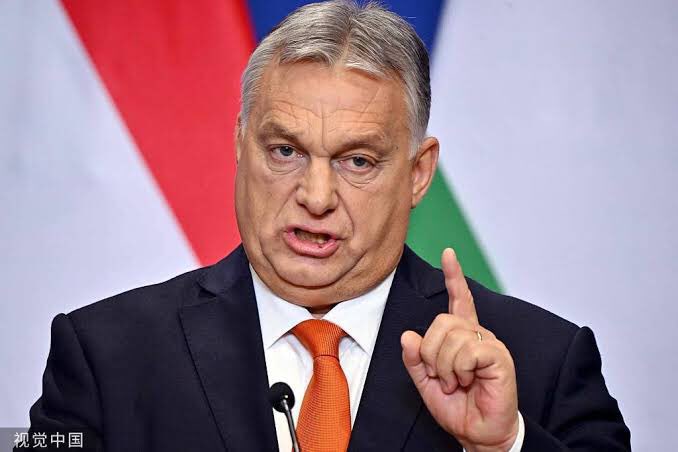
More on this story: “Viktor Orbán’s Russian Alignment: A Threat from Within the European Union”
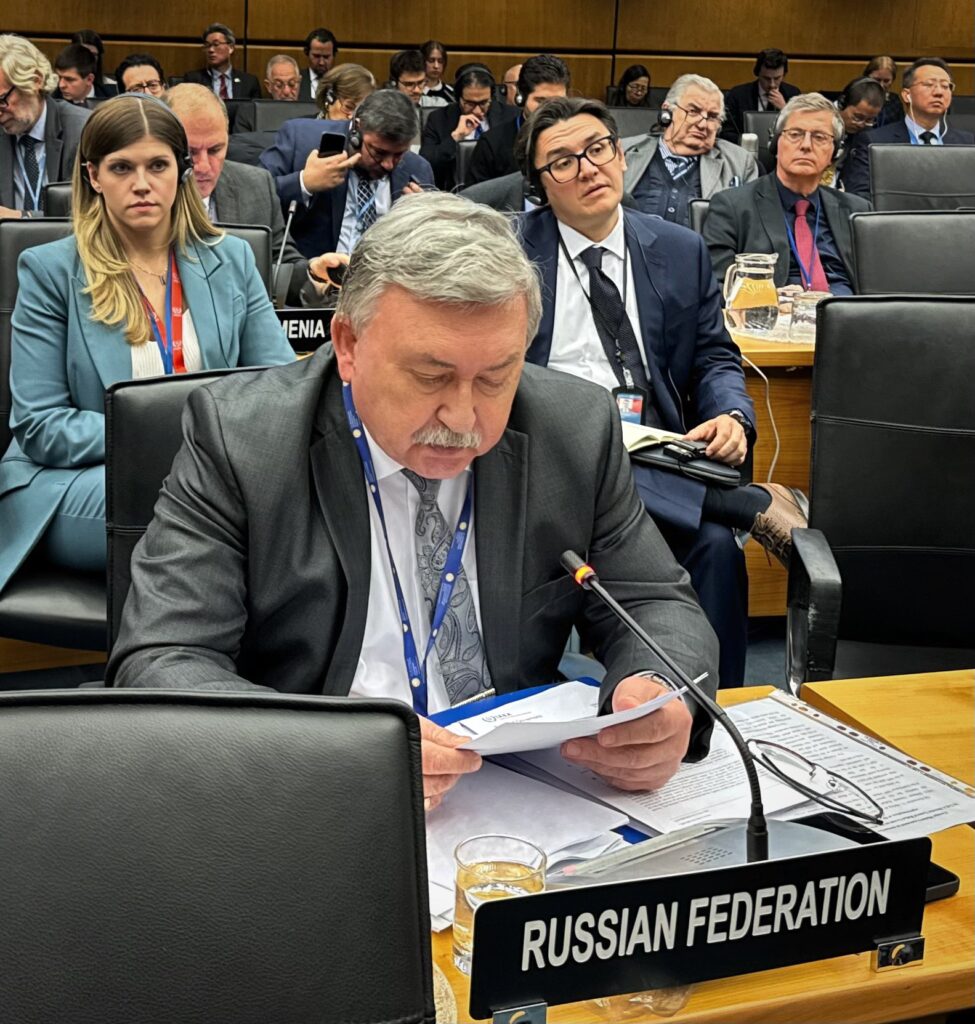
More on this story: From Delays to Dependence: Understanding the Challenges of Russian NPPs
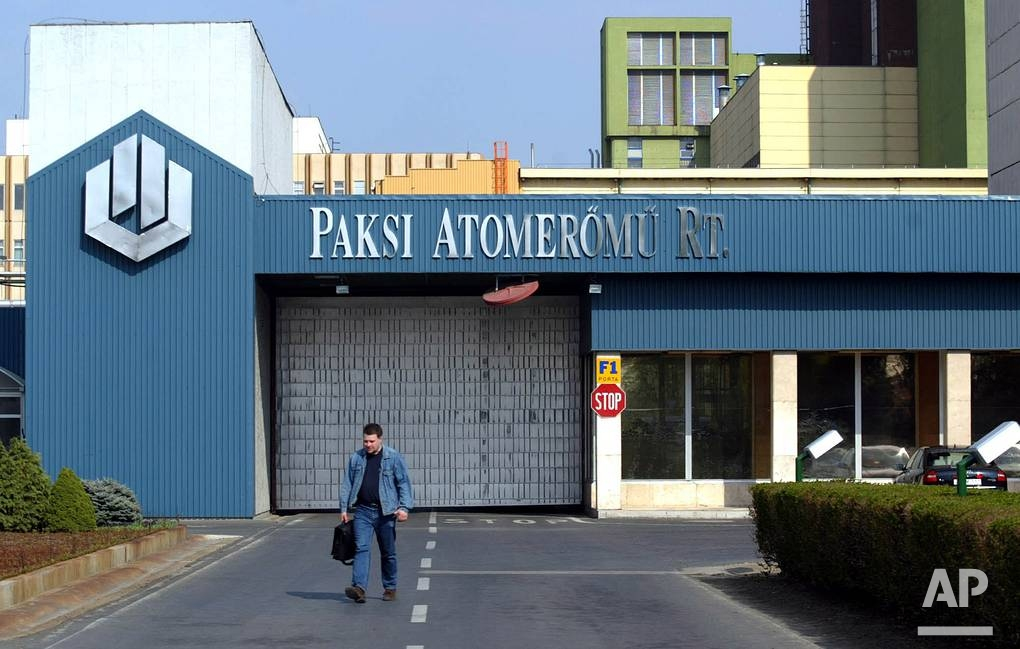
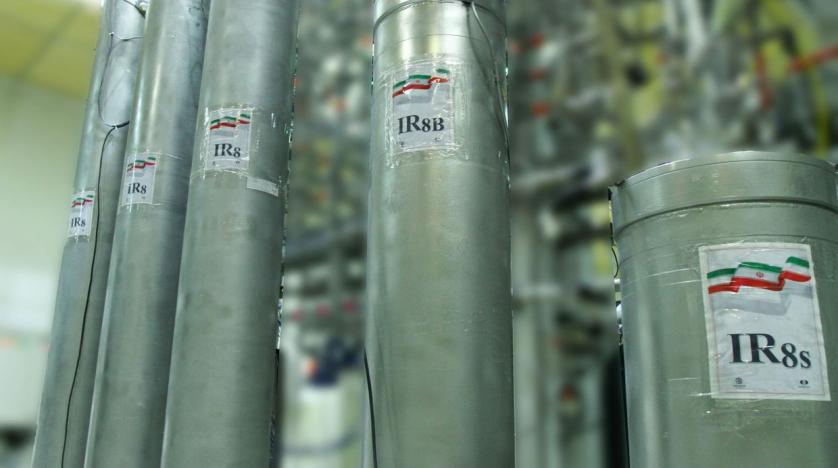
More on this story: Rosatom violates non-proliferation treaty in Iran
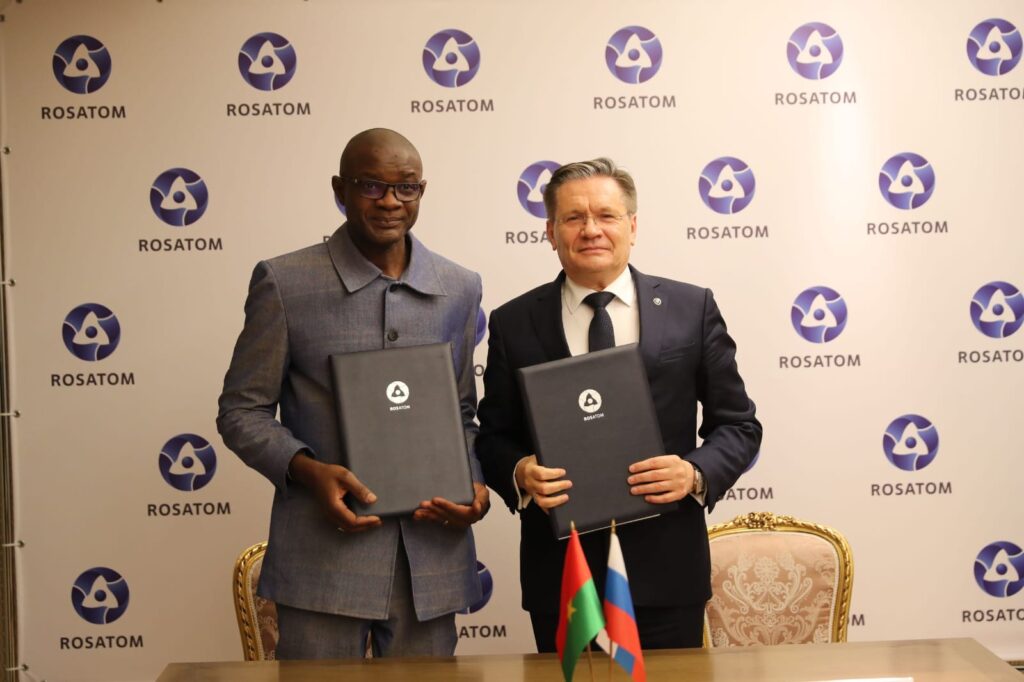
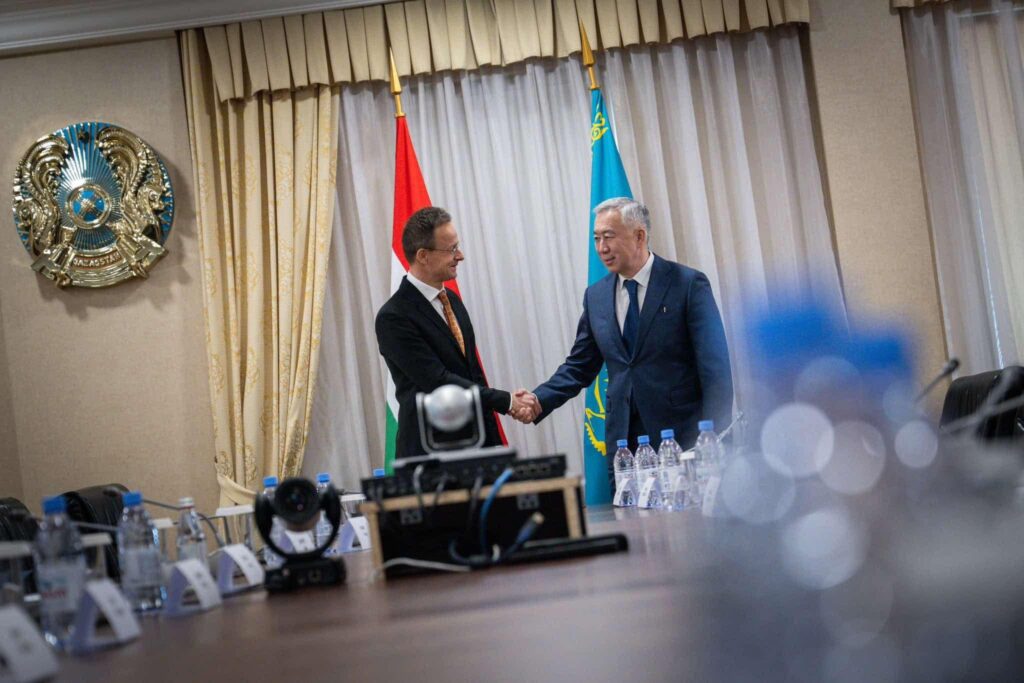
More on this story: How Hungary’s Outreach to Central Asia Risks Undermining EU Sanctions on Russia


